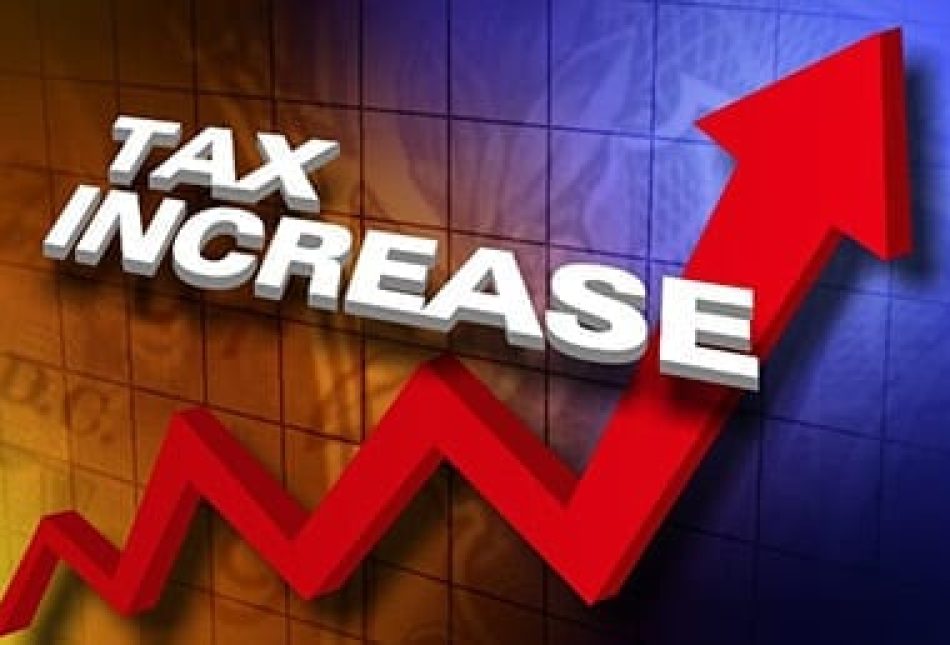Tax hikes won’t diversify New Mexico economy

![]()
House Democrats have revamped and are now pushing HB 6, legislation that ostensibly “reforms” New Mexico’s tax code. In reality, the legislation would impose a variety of tax hikes and raise New Mexicans’ overall tax burdens by $120 million a year.
The bill would have the positive impact of reducing the State gross receipts tax rate by 0.5%, but the legislation includes numerous taxes including but not limited to motor vehicle excise taxes, a 10 cent per gallon increase in the gas tax, hiking the top rate on personal income taxes from 4.9 to 6.5 percent, and several others.
The bill represents the worst of all worlds: it doesn’t tackle the fundamental problems with the gross receipts tax (like imposing taxes on services provided by New Mexico businesses) which make it so fundamentally-harmful. And it raises overall taxes and government revenues in ways that will harm New Mexico’s economy.
New Mexico is already a high tax state. According to the website Key Policy Data, New Mexico has the 6th-highest taxes in the nation when measured against the State’s private sector economy.
The only real positive associated with the legislation as a whole is the stated desire of its supporters to “diversify New Mexico’s economy.” That is an important discussion for policymakers to have. Unfortunately, tax hikes will do nothing to diversify the economy.
We already have a viable model for tax reform. Rep. Jason Harper has proposed revenue-neutral plans to really reform the GRT. Unfortunately, he’s a Republican and despite past co-sponsorship with the eminently-credible Democratic Chairman of the Senate Finance Committee John Arthur-Smith, past bills have died in the Legislature.
It would be great if the Democrats who control both houses and the Governor’s Mansion were serious about diversifying New Mexico’s economy during this legislative session. Unfortunately, we’re just getting a lot more spending, tax hike proposals, large minimum wage hikes, and efforts to undermine the main driver of New Mexico’s economy, oil and gas. Efforts to burden the industry with a variety of taxes, regulations, and even an outright ban on “fracking” might make oil and gas less dominant with regard to New Mexico’s economy, but we don’t have anything to replace it with.
Diversifying New Mexico’s economy is a critical and worthwhile goal, but raising taxes or hampering oil and gas development are not the ways to get there. Instead, New Mexico policymakers of both parties need to focus on reducing obstacles to economic activity that make New Mexico less attractive to business.
The gross receipts tax is an important starting point, but the issue isn’t just rates. The whole system needs to be reformed. Reforming labor regulations like adopting “Right to Work” would be another avenue, but the Legislature has already rejected that this session. Bills to reform occupational licensure have been introduce this session as well, but haven’t been moved through the process as quickly as other bills.
Unfortunately, real reform of New Mexico’s broken tax system isn’t even being considered this session. The best we can hope for is a more moderate New Mexico Senate that just says “no” to the economically-destructive ideas coming out of the House.
And, like the Chicago Cubs of my youth, when it comes to the New Mexico Legislature, there’s always next year.
Paul Gessing is the President of New Mexico’s Rio Grande Foundation. The Rio Grande Foundation is an independent, non-partisan, tax-exempt research and educational organization dedicated to promoting prosperity for New Mexico based on principles of limited government, economic freedom and individual responsibility.
